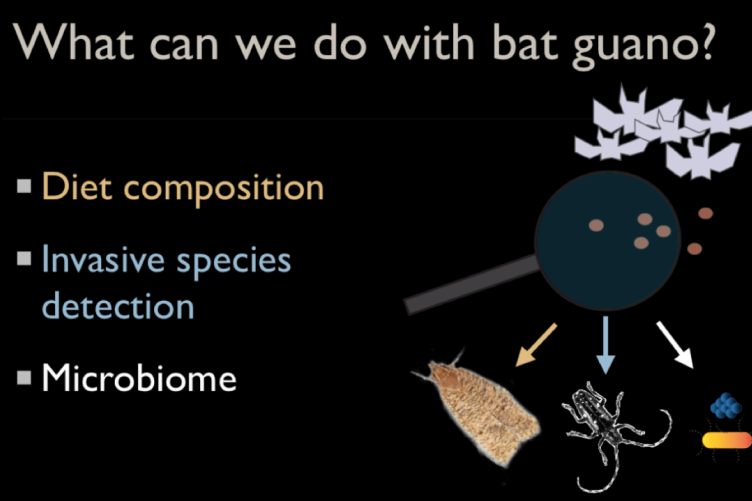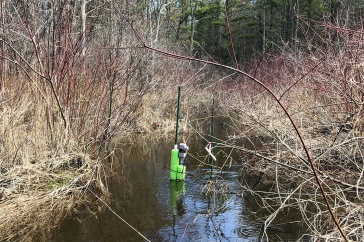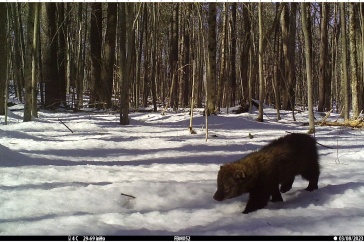
Doctoral student Devon O'Rourke is working with NH Agricultural Experiment Station researcher Jeff Foster on understanding the ecological and evolutionary dynamics of endemic bat populations. One aspect of this research relies on bat poop (guano) to describe the seasonal and geographic variation in the diets of bats native to New England. Understanding changes in the diversity and composition of insect species consumed by bats can greatly improve pest management strategies, inform conservation efforts, and shape land use strategies of forested areas affected by invasive pests. Learn more about Devon's experiment station-funded research in his presentation at the 2017 Farm and Forest Expo: https://www.youtube.com/watch?v=J7HcNih8Iuk
Founded in 1887, the NH Agricultural Experiment Station at the UNH College of Life Sciences and Agriculture is UNH’s original research center and an elemental component of New Hampshire's land-grant university heritage and mission. We steward federal and state funding, including support from the USDA National Institute of Food and Agriculture, to provide unbiased and objective research concerning diverse aspects of sustainable agriculture and foods, aquaculture, forest management, and related wildlife, natural resources and rural community topics. We maintain the Woodman and Kingman agronomy and horticultural research farms, the Macfarlane Research Greenhouses, the Fairchild Dairy Teaching and Research Center, and the Organic Dairy Research Farm. Additional properties also provide forage, forests and woodlands in direct support to research, teaching, and outreach. For more information, visit http://colsa.unh.edu/nhaes/.
-
Written By:
Lori Tyler Gula, PhD | NH Agricultural Experiment Station | lori.gula@unh.edu | 603-862-1452
















































